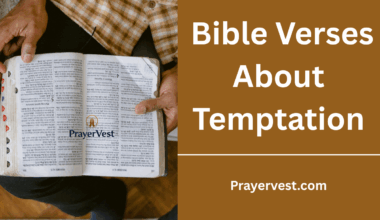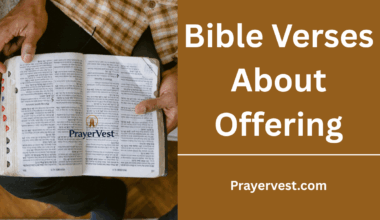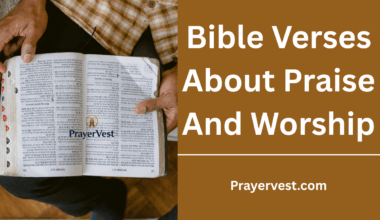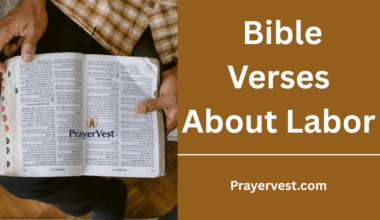Scripture has many references to healing and forgiveness, which indicate God’s desire for both spiritual and physical repair. The Bible demonstrates that forgiveness is frequently the first step toward true healing because it allows for peace and rejuvenation.
In addition to pardoning our faults, God commands us to show others the same grace. By doing this, we become free of emotional constraints, which enables our hearts to heal and our relationships to be repaired.
The Bible demonstrates that healing extends beyond the physical body to include the mind, heart, and soul in both the Old and New Testaments. Since forgiveness eliminates the obstacles that stand in the way of wholeness, it is essential to this process.
Scripture guarantees us that this act of grace results in inner peace and spiritual health, regardless of whether we are asking for forgiveness from others, forgiving someone who has mistreated us, or getting forgiveness from God. The Bible’s teachings act as a guide, urging us to forgive transgressions and put our faith in God to mend the scars they cause.
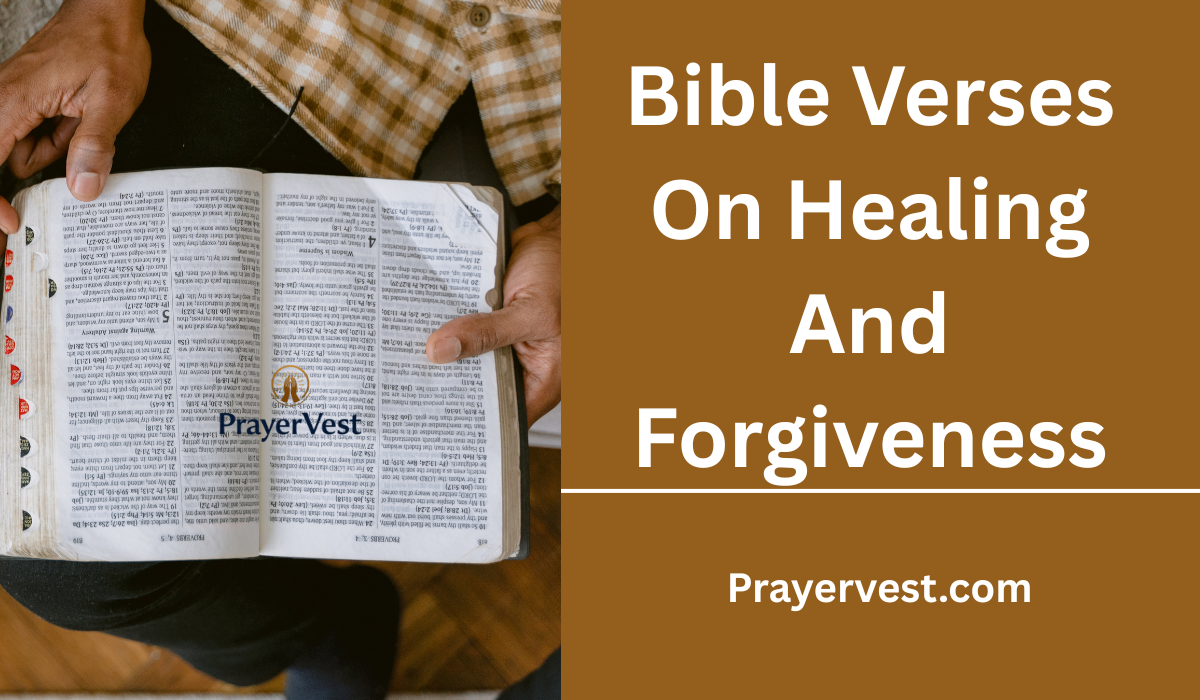

These Bible passages about forgiveness and healing serve as a reminder that the ultimate source of restoration is God’s love. They provide solace to the wounded, encouragement to the disheartened, and guidance to those who yearn to overcome suffering. We are encouraged to accept God’s method of repairing the shattered parts of our lives as we reflect on these verses—by accepting His pardon, giving it to others, and letting His healing touch change our hearts. Through His power, brokenness can give way to wholeness, and scars can become testimony.
40 Uplifting Bible Verses On Healing And Forgiveness (2026)
1. Psalm 103:2-3
“Praise the Lord, my soul, and forget not all his benefits—who forgives all your sins and heals all your diseases.”
This Psalm captures the essence of God’s mercy and restorative power. David reminds his soul to remember God’s countless blessings, with forgiveness and healing being at the forefront. These twin acts—pardoning our iniquities and restoring our health—reveal God’s holistic care for both spirit and body. The verse teaches us that true healing begins with a cleansed heart, and that God’s compassion extends to every area of our lives, restoring us in ways no human remedy can fully achieve.
2. Psalm 147:3
“He heals the brokenhearted and binds up their wounds.”
This verse paints a tender image of God as a compassionate healer who tends to emotional and spiritual injuries as lovingly as physical ones. The “brokenhearted” are those weighed down by grief, guilt, or life’s crushing burdens. God’s healing is intimate and personal, involving not only restoration but also the mending of deep inner pain. This reminds us that no wound—whether visible or hidden—is beyond His reach, and that His healing touch renews both our hope and our joy.
3. Psalm 41:4
“I said, ‘Have mercy on me, Lord; heal me, for I have sinned against you.’”
In this heartfelt prayer, the psalmist acknowledges the link between sin, repentance, and healing. He appeals to God’s mercy, recognizing that spiritual restoration is as important as physical well-being. This verse teaches that confession opens the door for God’s healing touch, showing us that forgiveness and health often walk hand in hand in God’s redemptive plan.
4. Psalm 30:2
“Lord my God, I called to you for help, and you healed me.”
This simple yet profound declaration reflects the power of earnest prayer. The psalmist cries out in distress and experiences God’s direct intervention. It reminds us that God hears every plea for healing and responds in His perfect timing, bringing both relief and renewed strength to those who seek Him with sincerity.
5. Psalm 32:5
“Then I acknowledged my sin to you and did not cover up my iniquity. I said, ‘I will confess my transgressions to the Lord.’ And you forgave the guilt of my sin.”
Here, David reveals the freedom and inner healing that come from honest confession. Hiding sin only prolongs the burden, but opening our hearts to God leads to forgiveness and release from guilt. This verse teaches that spiritual healing begins the moment we stop concealing our faults and instead surrender them to the Lord.
6. Psalm 107:19-20
“Then they cried to the Lord in their trouble, and he saved them from their distress. He sent out his word and healed them; he rescued them from the grave.”
This passage highlights God’s Word as a healing force. His deliverance is not limited to physical health but extends to rescuing souls from spiritual death. It reminds us that when we turn to Him in trouble, His truth and promises become the medicine for our weary hearts and the source of new life.
7. Psalm 51:10-12
“Create in me a pure heart, O God, and renew a steadfast spirit within me… Restore to me the joy of your salvation and grant me a willing spirit, to sustain me.”
David’s cry after his sin with Bathsheba is one of the most sincere prayers for forgiveness in Scripture. It reveals that real healing begins with a renewed heart and spirit. Forgiveness is not merely about removing guilt—it is about restoring joy, purpose, and a right relationship with God.
8. Psalm 6:2
“Have mercy on me, Lord, for I am faint; heal me, Lord, for my bones are in agony.”
This verse gives voice to moments of deep weakness and suffering. The psalmist pleads for God’s intervention when both body and soul feel worn down. It is a reminder that God’s healing is not only for the spiritually strong but also for those who feel at the very brink of collapse.
9. Psalm 38:3-4
“Because of your wrath there is no health in my body; there is no soundness in my bones because of my sin. My guilt has overwhelmed me like a burden too heavy to bear.”
This passage reflects the deep spiritual and emotional weight that unconfessed sin can place on a person. It teaches that carrying guilt without seeking God’s forgiveness can even impact our physical and emotional well-being. True healing comes when we release that burden to the Lord.
10. Psalm 25:18
“Look on my affliction and my distress and take away all my sins.”
In this short yet powerful plea, David ties his suffering to the need for forgiveness. He recognizes that God’s compassion can lift both affliction and guilt. It’s a reminder that when we seek God’s mercy, He addresses the root causes of our pain—not just the symptoms.
11. Psalm 86:5
“You, Lord, are forgiving and good, abounding in love to all who call to you.”
This verse celebrates God’s nature as both compassionate and forgiving. His love is not limited to a select few but extends to everyone who calls on Him. It reassures us that no matter how far we have strayed, His mercy is abundant enough to cover all our failings and restore our hearts.
12. Psalm 86:15
“But you, Lord, are a compassionate and gracious God, slow to anger, abounding in love and faithfulness.”
Here, the psalmist reflects on God’s enduring patience and kindness. These attributes are the foundation of both healing and forgiveness, revealing that our restoration is rooted not in our worthiness but in His unchanging character.
13. Psalm 130:3-4
“If you, Lord, kept a record of sins, Lord, who could stand? But with you there is forgiveness, so that we can, with reverence, serve you.”
This passage reminds us of our universal need for grace. Without God’s mercy, no one could endure His judgment. Yet His forgiveness not only cleanses us but also inspires us to live with deep reverence and gratitude.
14. Psalm 147:11
“The Lord delights in those who fear him, who put their hope in his unfailing love.”
God’s pleasure is not in outward strength but in a heart that trusts Him fully. Healing and forgiveness flow from this posture of dependence, where our hope rests not in ourselves but in His steadfast love.
15. Psalm 30:10-11
“Hear, Lord, and be merciful to me; Lord, be my help. You turned my wailing into dancing; you removed my sackcloth and clothed me with joy.”
This testimony shows God’s transformative power. He not only heals but also replaces sorrow with joy, turning mourning into a testimony of His goodness and mercy.
16. Psalm 34:17-18
“The righteous cry out, and the Lord hears them; he delivers them from all their troubles. The Lord is close to the brokenhearted and saves those who are crushed in spirit.”
This verse is a comfort for anyone weighed down by grief or guilt. God’s nearness in our brokenness is a reminder that His healing often begins with His presence, restoring hope before anything else.
17. Psalm 41:3
“The Lord sustains them on their sickbed and restores them from their bed of illness.”
This verse speaks directly to God’s ability to restore health. Even when illness confines us, His sustaining power works in unseen ways, bringing strength, comfort, and eventual recovery.
18. Psalm 19:12-13
“But who can discern their own errors? Forgive my hidden faults. Keep your servant also from willful sins; may they not rule over me.”
The psalmist humbly asks for forgiveness not just for obvious sins but also for those that are hidden from his awareness. This reflects the depth of God’s healing—addressing both the seen and unseen areas of our hearts.
19. Psalm 51:1-2
“Have mercy on me, O God, according to your unfailing love; according to your great compassion blot out my transgressions. Wash away all my iniquity and cleanse me from my sin.”
David’s opening words in his prayer of repentance reveal the heart posture needed for true forgiveness. It is an appeal to God’s compassion, acknowledging that only He can cleanse and renew us.
20. Psalm 103:8-9
“The Lord is compassionate and gracious, slow to anger, abounding in love. He will not always accuse, nor will he harbor his anger forever.”
This verse assures us that God’s discipline is tempered with grace. His forgiveness is swift when we turn back to Him, and His anger is never meant to be permanent—it gives way to mercy and healing.
21. Psalm 25:7
“Do not remember the sins of my youth and my rebellious ways; according to your love remember me, for you, Lord, are good.”
This heartfelt prayer seeks God’s mercy over past mistakes. It shows us that forgiveness is not about erasing history but about God choosing to remember us through the lens of His love rather than our failures.
22. Psalm 145:8-9
“The Lord is gracious and compassionate, slow to anger and rich in love. The Lord is good to all; he has compassion on all he has made.”
This verse reassures us that God’s grace and compassion are available to everyone. His goodness extends to all creation, and His mercy is the foundation for both healing and forgiveness.
23. Psalm 116:1-2
“I love the Lord, for he heard my voice; he heard my cry for mercy. Because he turned his ear to me, I will call on him as long as I live.”
The psalmist’s love for God grows from personal experience—God hears and responds. This truth reminds us that our cries for healing or forgiveness never fall on deaf ears.
24. Psalm 130:7
“Israel, put your hope in the Lord, for with the Lord is unfailing love and with him is full redemption.”
Here we see that hope is anchored in God’s promise of complete restoration. His redemption is not partial—it is thorough, covering every sin and healing every wound.
25. Psalm 107:1
“Give thanks to the Lord, for he is good; his love endures forever.”
Thanksgiving is a vital part of healing and forgiveness. Gratitude shifts our focus from the weight of our troubles to the constancy of God’s love.
26. Psalm 103:10-11
“He does not treat us as our sins deserve or repay us according to our iniquities. For as high as the heavens are above the earth, so great is his love for those who fear him.”
God’s mercy far exceeds human fairness. His love is immeasurable, and His forgiveness is greater than any sin we could commit.
27. Psalm 32:1
“Blessed is the one whose transgressions are forgiven, whose sins are covered.”
This verse declares the joy and freedom that come from being forgiven. True blessedness is found in knowing our sins are covered by God’s grace.
28. Psalm 25:11
“For the sake of your name, Lord, forgive my iniquity, though it is great.”
The psalmist appeals to God’s reputation of mercy. This shows that forgiveness is an expression of God’s own nature, not our merit.
29. Psalm 41:1
“Blessed are those who have regard for the weak; the Lord delivers them in times of trouble.”
Kindness toward others is linked with divine protection and deliverance. When we extend compassion, we align ourselves with God’s healing purposes.
30. Psalm 86:13
“For great is your love toward me; you have delivered me from the depths, from the realm of the dead.”
This verse reflects God’s rescue from hopeless situations. His love delivers us from spiritual death into new life.
31. Psalm 103:12
“As far as the east is from the west, so far has he removed our transgressions from us.”
Here we see the totality of God’s forgiveness—it is complete and irreversible, creating space for true healing to take root.
32. Psalm 9:9-10
“The Lord is a refuge for the oppressed, a stronghold in times of trouble. Those who know your name trust in you, for you, Lord, have never forsaken those who seek you.”
This verse offers assurance that God’s presence is a safe haven for those seeking comfort, forgiveness, and healing.
33. Psalm 85:2
“You forgave the iniquity of your people and covered all their sins.”
This short yet profound statement acknowledges God’s past acts of mercy, encouraging us to trust Him for continued forgiveness and restoration.
34. Psalm 23:3
“He refreshes my soul. He guides me along the right paths for his name’s sake.”
God’s healing is not only about removing pain but also about renewing our inner being and guiding us toward righteousness.
35. Psalm 30:3
“You, Lord, brought me up from the realm of the dead; you spared me from going down to the pit.”
This verse shows God’s power to rescue us from life’s lowest points—both physically and spiritually—restoring hope and life.
36. Psalm 51:17
“My sacrifice, O God, is a broken spirit; a broken and contrite heart you, God, will not despise.”
True forgiveness comes when we approach God in humility. He never rejects a repentant heart.
37. Psalm 55:22
“Cast your cares on the Lord and he will sustain you; he will never let the righteous be shaken.”
This verse assures us that God’s sustaining power is available when we hand over our burdens—whether sin, sickness, or sorrow—to Him.
38. Psalm 62:1-2
“Truly my soul finds rest in God; my salvation comes from him. Truly he is my rock and my salvation; he is my fortress, I will never be shaken.”
Healing and forgiveness bring peace, and that peace is secure when anchored in God’s unchanging strength.
39. Psalm 103:4-5
“Who redeems your life from the pit and crowns you with love and compassion, who satisfies your desires with good things so that your youth is renewed like the eagle’s.”
This verse reveals the fullness of God’s restoration—redeeming, loving, satisfying, and renewing His people completely.
40. Psalm 145:14
“The Lord upholds all who fall and lifts up all who are bowed down.”
God’s healing touch is not only for the physically ill but also for the weary and discouraged. His forgiveness and grace lift us from the weight of sin and restore our strength.
Conclusion
In summary, God’s gifts of forgiveness and healing are linked and combine to rebuild our spiritual health, relationships, and hearts. The Bible makes it very evident that harboring anger and resentment can impede one’s ability to grow spiritually and emotionally, whereas forgiveness allows God’s healing power to freely flow. We take a significant step toward letting go of the hurt of the past and accepting the freedom that Christ provides when we decide to forgive—either ourselves, others, or both. As we let His love heal our wounds and rekindle our strength, healing ensues.
In the end, the texts on forgiveness and healing serve as a reminder that God’s grace is adequate to cover every wrongdoing and every injury. His mercy is greater, and His ability to heal is unbounded, regardless of how severe the injury or how heavy the load. Not only are we cured when we apply these verses to our own lives, but we also become tools for healing others. Relationships may be restored, hearts can be freed to love again, and brokenness can be made whole in God’s presence.

